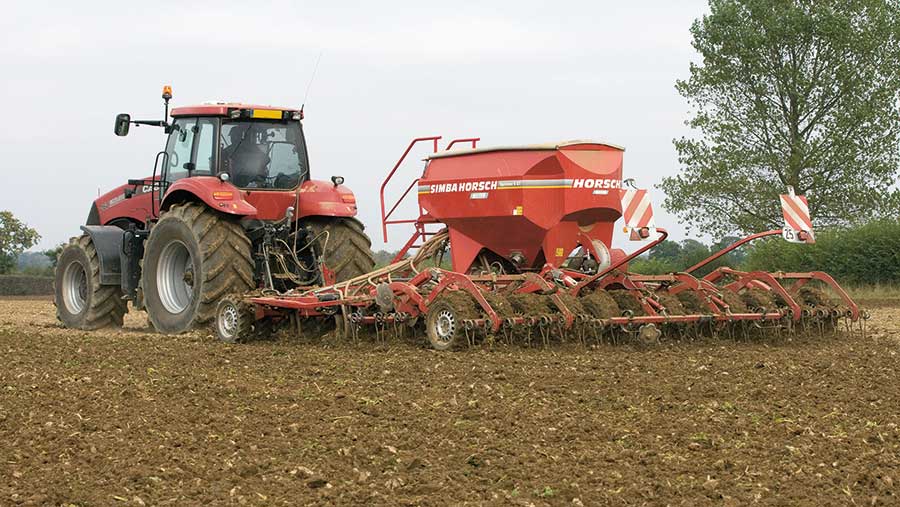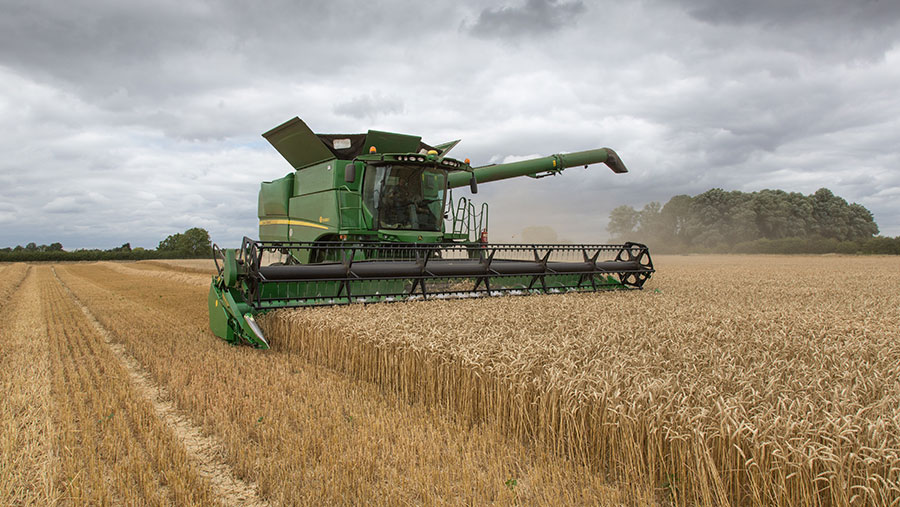NFU outlines top 10 key amendments to Agriculture Bill
 © Tim Scrivener
© Tim Scrivener Growers and livestock producers are being urged to lobby their MPs over government plans that will see direct payments abolished and replaced with a new system of farm support.
The government’s long-awaited Agriculture Bill – which will grant ministers new powers to restructure farming once the UK leaves the European Union – received its second reading in the House of Commons on Wednesday (10 October).
See also: Agriculture Bill seeks better deal for farmers in supply chain
The bill includes government plans to phase out direct payments to farmers over five years ending in 2027. The payments will be replaced by a new system of support, largely based on rewarding farmers who implement environmental measures.
But farm leaders have major reservations about some of the proposals. NFU policy director Andrew Clark outlined 10 key amendments the union wants to the bill. The legislation would affect farmers for decades to come and it must recognise the importance of food production, he said.
“The challenge now is to ensure it provides an effective framework for government to support farmers to run productive and sustainable businesses – with all the accompanying benefits that has for delivering public goods.”
1. An ‘agricultural’ Agriculture Bill
The NFU says wants a “explicit and clear” overarching agricultural focus to the bill – arguing that Brexit is a once-in-a-generation chance to develop a UK-specific agricultural policy that drives integration of profitable food production with high environmental and animal welfare standards. While maintaining a broad range of purposes for financial support, the NFU wants any such assistance linked explicitly to agricultural activity, farm businesses or farmland.
2. Promoting the nation’s strategic priorities
The NFU believes the government has a strategic interest in ensuring a sufficient level of domestic food production. Supporting domestic agriculture to ensure food security and stability of food supply should be included in the purposes for which financial assistance can be provided, it says.
Farm businesses also have an important role to play in other strategic priorities such as energy and water supply, so these should be further ends to which financial assistance can be provided, the union argues.
Lobby your MP in a minute
Farmers are being encouraged to contact MPs to highlight the importance of a good outcome for agriculture. With limited time to do so, the NFU highlights these four key points:
- Food security An agricultural bill that supports farmers, farmland and agricultural activity, with food security as a public good.
- Better support for volatility and market failure Financial assistance, especially if phasing out direct payments proves unmanageable.
- A multi-annual budgetary cycle So funding is guaranteed over a number of years beyond the lifetime of a single government.
- Trade and standards Food imported into the UK must be produced to standards at least equivalent to those required of UK producers
3. Competitiveness and financial resilience
The bill should promote improvements in the competitiveness and financial resilience of farm businesses, helping farmers better manage risk and periods of poor market returns, says the NFU.
The bill currently allows Welsh ministers wide discretion in providing financial assistance to farmers and growers – and the union wants this discretion extended to England too.
During the agricultural transition, when direct payments are being phased out, the NFU says the government must be allowed powers to reverse reductions in direct payments – so ministers can intervene if there is a detrimental effect on the nation’s ability to produce food.
4. Valuing and protecting standards
The bill should ensure that all food imported into the UK be produced to at least equivalent animal welfare, environmental protection and food production standards as those required of producers in the UK, says the NFU.
The union is increasingly vocal on this point, arguing that failure to do so would undermine the principles that should be at the heart of the bill – an efficient, productive, profitable UK farming sector that meets public needs, both in terms of food and public goods.

© FLPA/REX/Shutterstock
5. Budgetary cycles
The NFU wants the bill to establish a multi-annual budgetary framework that provides certainty for famers and allows them to plan and invest for the future – in effect long-term funding that goes beyond the lifetime of any government.
Budgetary cycles should be independent of the parliamentary cycle to reflect the need for long-term planning and investment and to avoid the agricultural budget becoming politicised, says the union.
6. Strengthening the farmer’s position in the supply chain
Provisions in the bill aim to encourage a fairer marketplace – and the NFU has welcomed plans to provide farmers with access to robust market data. But it has also voiced concern that plans for the government to collect data from farm businesses go well beyond what is needed.
The bill will also allow a UK-focused approach to producer organisations (POs). The union says existing principles that underpin POs should be retained, including exemption from competition laws and financial assistance.
“Fair dealing” provisions in the bill are very important, says the NFU, which has welcomed powers to impose obligations on first purchasers of agricultural products. The lists of matters that may be specified under such contracts should be as wide as possible, it says.
7. Maintaining a level playing field
The NFU says ministers must ensure the bill maintains a level playing field among farmers and growers across the UK’s four home nations, while still respecting devolution, the UK internal market and the UK’s international obligations.

© Tim Scrivener
8. Appropriate use of ministerial powers
Provisions allowing ministers to use secondary legislation when exercising powers must be used effectively and proportionately, says the NFU.
There must be appropriate checks and balances in place, with a clear commitment from the government that stakeholders will be consulted while such powers are used, says the union. Any future support measures must be co-designed with the farming industry, it adds.
9. Reducing red tape in farming
Ministers must use the powers in the bill to minimise bureaucracy and administrative complexity, putting fairness and proportionality at the heart of enforcement mechanisms, says the NFU. This should include appropriate sanction regimes, an effective independent appeals system, and use of non-regulatory approaches such as earned recognition, it says.
10.Wider government policy
The NFU says it has some important concerns about the government’s intentions to use powers in the bill to reform agricultural policy once the UK is no longer subject to the CAP.
This includes an apparent oversight of the importance of food production in future policy, the failure to acknowledge the potential for disruption to the agri-food sector as a result of a disorderly Brexit, and the phasing out of direct payments that discriminates on the basis of size of claim.
Provisions on delinking payments from the requirement to farm during the phase-out period also require further detail, says the NFU – not least with regard to how to avoid discrimination against tenant farmers wishing to retire.
These critical issues – and many more – although not entirely covered by the bill itself, are an integral part of future policy, says the NFU. It is urging MPs to explore and interrogate them fully during the passage of the bill.
